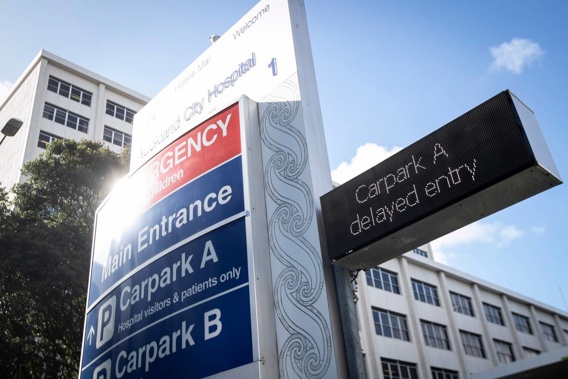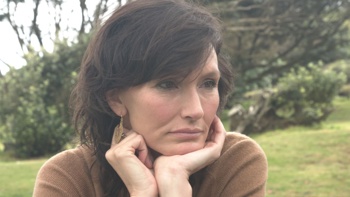Simpson's report labelled New Zealand's health care system "complex" and "fragmented," and in need of major reform.
/cloudfront-ap-southeast-2.images.arcpublishing.com/nzme/DHKVXESKYJC5LJRSYDTQLYYU5I.jpg)
Ministers are now considering how to implement the major shake-up, and Prime Minister Jacinda Ardern will lead a team of top ministers to drive the changes.
But no major moves will be made until after the election.
Asked whether the Government would enact all of the recommendations, Clark said individual decisions on each of them would go to Cabinet, or to a future Government.
"The opportunity is huge", Clark said.
The report recommends the creation of a new entity, Health NZ, which would focus on the operational and financial side of the health and disability sector.
The Government is also being asked to consider setting up a Māori Health Authority, which would advise on Māori Health and report on the performance of the system.
The decision on whether or not the recommendations will be accepted now falls to the Government.
But Health Minister David Clark, who said Simpson's work was a "once-in-a-generation" report, appears to be open to implementing the recommendations.
"Cabinet has accepted the case for reform, and the direction of travel outlined in the review," he said this morning.
Ministers will discuss the recommendations over the coming months and make a decision after the election.
But Clark confirmed Ardern will lead a team of ministers – including Finance Minister Grant Robertson and himself – to drive the changes.
"Make no mistake, reforming our health and disability system is a massive undertaking, and will not happen overnight. Meaningful change and improvement will take a concerted effort over many years."
The report, which Simpson herself said was "probably the most comprehensive integrated look" at New Zealand's health care system in a generation, outlined many of the sector's shortcomings.
/cloudfront-ap-southeast-2.images.arcpublishing.com/nzme/4X7H6X7MCNF5JOWEC22SUO3U4M.jpg)
"The health and disability system is under serious stress," the report said.
It said that from a financial perspective, the health care system has struggled with the resources provided to if for some years.
"From a workforce point of view, staff are feeling more and more stressed, facing increasing demands and significant shortages in supply."
The report's major recommendations, now being considered, include:
• Shifting to a greater focus on population health
• Creating a new Crown Entity, provisionally called Health NZ, focused on operational delivery of health and disability services and financial performance
• Reducing the number of DHBs from the current 20 down to 8-12 within five years, and moving to fully appointed Boards
• Creating a Māori Health Authority to advise on all aspects of Māori Health policy and to monitor and report on the performance of the system with respect to Māori
• Greater integration between primary and community care and hospital/specialist services
Simpson's report was particularly critical of DHB leadership, saying that it "needs to change" and the effectiveness of elected board members was "not compelling".
"The review recommends that all board members be appointed by the Ministry of Health against a transparent set of competencies."
These include financial and governance experience, knowledge of Māori health needs and an understanding of the disability sector.
Simpson also proposed that a new agency, Health NZ, be set up which would run the ruler over DHB's financials.
The majority of New Zealand's DHBs have reported deficits for quarter after quarter and are expected to remain in the red for the foreseeable future.
The creation of a specific Māori Health Authority, which Simpson said would strengthen Māori leadership, has also been recommended.
This authority would be the principal advisor on Maori health issues, as well as taking the lead in strengthening the Maori workforce in the health sector around the country.










